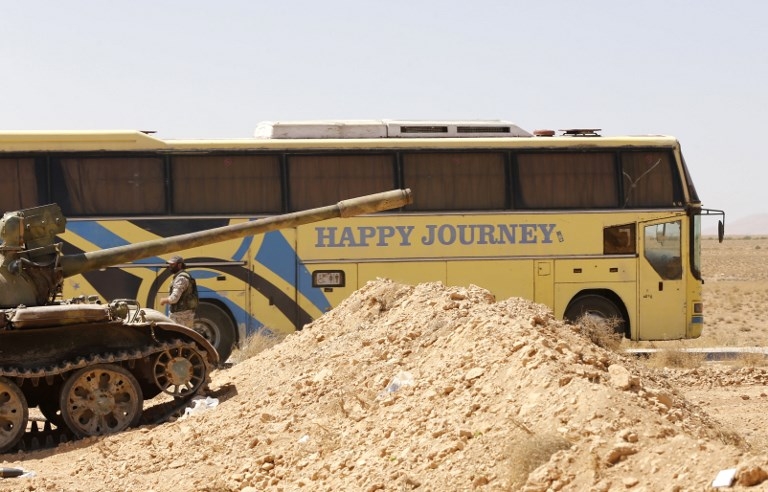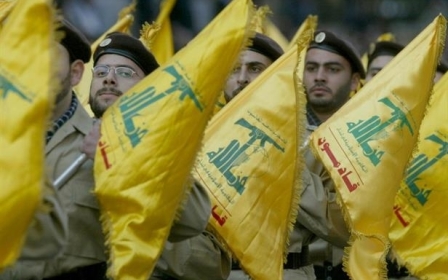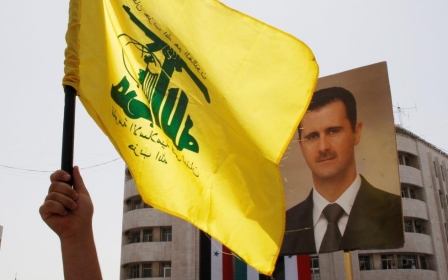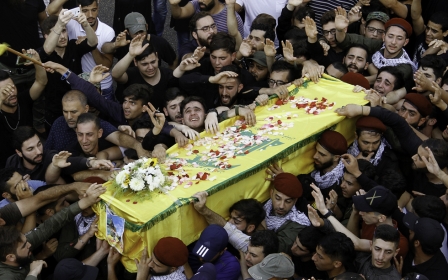All aboard: Hezbollah and IS’s great escape

An essential part of growing older and wiser includes recognising that Santa Clause, the Easter Bunny and the Tooth Fairy are fictional characters.
In the case of Lebanon and the recent events that transpired in the east of the country, it is perhaps prudent to add the Islamic State (IS) group to the list of make-believe figures – or at least that of menacing threats which seem to vanish into thin air once confronted.
Over the weekend, the Lebanese Army (LAF) concluded its month-long operation against IS militants who had bunkered down near the village of Arsal on the eastern border with Syria.
The LAF’s main objective was to liberate these occupied lands, destroy the terrorists’ military infrastructure and, with any luck, recover the nine soldiers held hostage by IS for the past three years.
They succeeded with their first two objectives. But the end of the battle brought the chilling news that all but one of the nine hostages had been executed. The remaining soldier joined IS and died while fighting in action.
A patriotic gesture?
The tragedy has only continued to unfold. On Monday, Hezbollah brazenly announced that it had reached a deal with IS, allowing the group to evacuate its besieged militants all the way to the Syrian town of Bukamal on the eastern border with Iraq.
Hassan Nasrallah, Hezbollah’s secretary general, tried to spin this outlandish deal as a “Second Day of Liberation” after the liberation of southern Lebanon from Israeli occupation in May of 2000.
According to Nasrallah, Hezbollah and the Assad regime had no alternative but to endorse this deal which prevented further bloodshed, secured the release of a Hezbollah POW and recovered the bodies of Hezbollah fighters and the eight LAF soldiers.
However, Nasrallah never clarified exactly how escorting 300 terrorists in air-conditioned buses – or rather allowing them to escape - and granting them impunity for the murder of hundreds, including eight servicemen, was a just and patriotic gesture.
And that’s because, while Nasrallah maintained throughout his televised speech that the measure was taken to protect Lebanon, no amount of rhetoric can mask the fact that the deal made entirely to serve Hezbollah’s interest.
In reality, the deal is an attempt to usurp the LAF’s much deserved military victory and maintain the myth that the army cannot single-handedly protect Lebanon.
And, Nasrallah conveniently also failed to mention - that is until today - that he travelled to Damascus to seek Assad's approval before making the deal.
Busting myths
More importantly, the zealousness and ease with which Hezbollah approached negotiations with IS indirectly implicates the group in the death of the eight soldiers and also in IS’s activities. Are these two sides rivals or merely associates in a much bigger plot?
Hezbollah’s top leadership, including Nasrallah, refused to even contemplate the idea of the Lebanese government negotiating with IS to secure the release of its troops since the time of their capture.
Back in 2014, this refusal was part and parcel of Hezbollah’s masterplan to obstruct the election of a new president until all of its demands are met and its candidate Michael Aoun was elected president.
This vacuum, in turn, paralysed the government and prevented the wheeling dealing political elite from sanctioning a military operation which might, at that stage, have liberated the LAF soldiers and destroyed IS's presence in Lebanon once and for all.
Equally alarming within the Hezbollah-IS affair is the fact that IS fighters whose hatred of the Shias and Iran is unlimited, deemed it convenient to surrender to Hezbollah rather than to than the LAF.
Footage circulated last week of IS fighters jubilantly surrendering to Hezbollah fighters and the Assad regime appears surreal, not to say fishy.
How could a security-conscious fighting outfit such as Hezbollah permit these IS villains, who are famed for sleeping with explosive belts, to merely stride through without previous inspection?
Hezbollah has always claimed the moral and religious high ground in its so-called fight against terrorism, assuring the Lebanese at large that they will never stoop to the level of the enemy and that their weapons will only serve the country and its people.
By leaving the Lebanese people hostage to the whims and interests of the group’s patrons and allies, Hezbollah has shattered their own myth.
This latest episode leaves one wondering: is this the lowest the group will go – or is this just another pit stop on Lebanon’s descent into chaos, guided by Hezbollah?
- Makram Rabah is a lecturer at the American University of Beirut, Department of History. He is the author of A Campus at War: Student Politics at the American University of Beirut, 1967-1975.
The views expressed in this article belong to the author and do not necessarily reflect the editorial policy of Middle East Eye.
Photo: A bus waiting to transport Islamic State (IS) group members is seen in the Qara area in Syria's Qalamoun region on 28 August 2017 as part of a deal between Hezbollah and IS which will see the IS fighters leave for eastern Syria. (AFP)
This article is available in French on Middle East Eye French edition.
New MEE newsletter: Jerusalem Dispatch
Sign up to get the latest insights and analysis on Israel-Palestine, alongside Turkey Unpacked and other MEE newsletters
Middle East Eye delivers independent and unrivalled coverage and analysis of the Middle East, North Africa and beyond. To learn more about republishing this content and the associated fees, please fill out this form. More about MEE can be found here.





